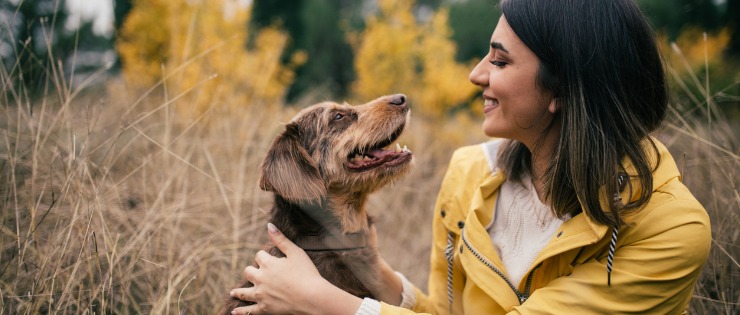
For twenty thousand years, we have lived alongside a species that has transformed almost beyond recognition. From an independent wolf to a needy snub-nosed pug, dogs have changed a great deal; especially when it comes to their relationship with us.
One of the traits we adore most about our dogs is their unmistakable loyalty. How pleased they are when we return home, how they follow us to the bathroom, and how they fret deeply when we are absent. But, is it loyalty that drives these behaviours? Or have we actually mistaken what our proclaimed best friends are really doing?
This got me to thinking about what loyalty really is, and after doing some research, I found out some interesting ideas around it. After reading many definitions of loyalty, I liked this one the best: being faithful and devoted to someone; it is giving or showing firm and constant support or allegiance to a person, written by Robert Evans Wilson from an article published in Psychology Today. I chose this definition because it relates closely to the relationships we have with our dogs.
Dogs seem to be experts at demonstrating loyalty, but what I do wonder is, why? What is the motivation for loyalty, and is it the same motivation as we humans have to be loyal? Looking historically at dog behaviour, wild dogs live in fluid pack hierarchies, and disperse from their family when they reach adulthood; particularly if they are males. Dogs in our families are never truly a fluid member of the group as they are always dependent on us for resources. And, they never have a choice to leave the group to form another like they would if they were wild. Therefore, I ask; are they loyal because they are innately invested in the relationship, or are they loyal because they have been domesticated to depend on us?
If you asked me personally, I would choose the most romantic Disney version of dog behaviour, because I love them so much, and I want to believe that that the relationship we have with dogs is one of virtue and faithfulness. But, it is important also to look critically at our relationship with our dogs and consider that perhaps a reason why they follow us everywhere, is not actually because we have earned their loyalty, but because they know no other way to behave.
As a behaviourist who works in the field of veterinary behaviour medicine, this is an important point to make about our relationship with our dogs. The reason why, is because dogs have been domesticated to be quite helpless without us, and I am not sure this is in their best interests. The more we encourage helpless behaviours in our dogs, the more anxious, fearful and distressed they can become. It is here that I ask; is this dog loyal to their owner, or are they needy of them? This question reveals two very different types of relationships. And because many dogs have sadly been bred without thought of sound temperament and health, there are hundreds of thousands of dogs out there who form helpless relationships with their humans, rather than loyal ones.
At the end of the day, it is our responsibility to provide the best possible life for our dogs, and part of that is caring for their mental health. If we want to encourage a loyal friendship, then building a relationship with our dogs based on trust and respect is key. We must earn it. Empowering them to think for themselves by offering them opportunities to make good choices and always setting them up to make a success of their choices is so important. In fact, it could be argued that this is the basis of loyalty for any relationship.
So, is the relationship you have with your dog one of loyalty?